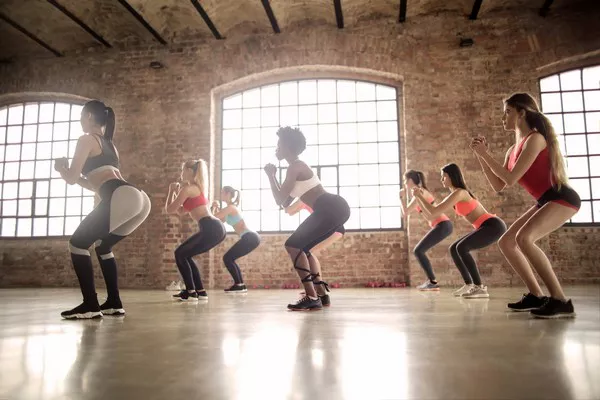The growing trend of influencers and amateur photographers utilizing gym spaces as picturesque backdrops for their social media content has prompted a response from health clubs across the UK. In response to concerns regarding privacy, safety, and the disturbance of other members, major fitness chains such as Virgin Active, PureGym, and Fitness First are implementing restrictions on filming and photography within their establishments.
The surge in the creation of gym-related content for platforms such as Instagram, TikTok, and YouTube has raised issues of consent and privacy, as gym-goers may unknowingly become background subjects in photos and videos. The presence of elaborate lighting setups and tripods on the gym floor has also led to safety hazards.
In an effort to address these concerns, Pure Muscles Gym in Walthamstow, London has instituted a weekend ban on tripods due to persistent issues. Virgin Active has announced plans to request members to delete images that raise concerns, while Fitness First insists on explicit consent from anyone potentially photographed or filmed.
Fitness instructor Erin Blakely, who has collaborated with major national gym chains, emphasized the safety hazards associated with filming in gyms. She stated, “Safety is an obvious concern; equipment on the floor can be hazardous. Beyond that, the distraction factor is significant. There’s a tendency to concentrate more on getting the ideal footage than on the workout.”
The issue extends beyond casual gym-goers sharing their fitness journeys to professional influencers and trainers who rely on gym content to build their online presence. Personal trainer James Dixon voiced his concerns, stating, “When they take over the gym for their videos, it’s not cool. Filming long workouts during busy times and hogging equipment ruins the experience for others.”
Controversial incidents, such as the posting of body-shaming or “gym creep” videos, have drawn attention to the issue. While gyms advocate for creators to obtain consent, this is often impractical in the midst of filming. According to Blakely, “In an environment like a gym, where people are focused on their own bodies and personal growth, being unknowingly filmed can feel particularly invasive.”
Gyms are striving for a middle ground that allows personal photos and videos while prohibiting disruptive shoots involving extensive equipment and inconsiderate content creation. Some facilities are considering the designation of specific filming areas to provide a balance and allow individuals to avoid cameras if desired, as suggested by Dixon.
However, fitness professionals who rely on gym shoots to promote their brands argue that these limitations impact their livelihoods. Dave Readle of the HIIT Company training platform contends that social media clips serve as crucial advertising, especially for instructors facing class cancellations.
As policies continue to evolve, gyms and other facilities are seeking solutions that strike a balance between allowing personalized filming and preventing intrusive productions.


